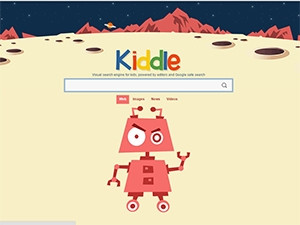
The Internet has been abuzz this week with controversy surrounding Kiddle, a new child-friendly search engine that blocks common phrases but not other inappropriate content.
At first, the site was shrouded in mystery when news outlets wrongly reported it was a Google spin-off. Kiddle is not officially affiliated with the search engine giant, but uses Google tools to power results.
The site bears a strong likeness to Google, using colours similar to those in the Google logo design. It is not clear who owns the Web site, or how the idea for the search engine came about.
ITWeb did reach out to Kiddle via its 'contact us' facility but has yet to receive a response. Google declined to comment on the child-friendly search engine.
Kiddle features simple language, larger pictures and uses Google safe search as well as a team of editors who it says "hand-pick" appropriate results for children. All sites that appear in a Kiddle search should, therefore, be filtered to remove explicit or deceptive content.
Digikids managing editor Cath Jenkin says she used the service and found certain words related to sexuality and gender identities seemed to be disallowed.
When words like bisexual, gay and transgender were put in the search engine, this message appeared: "You have entered an LGBT-related search query. Please realise that while Kiddle has nothing against the LGBT community, it's hard to guarantee the safety of all the search results for such queries. We recommend that you talk to your parent or guardian about such topics."
Jenkin says she can understand Kiddle's viewpoint, but also knows "in the other hemisphere of life that, very often, the reason why children are conducting searches for information is because they feel they can't talk to their parent about something".
These phrases have since been allowed on Kiddle, yielding results from biography.com, the White House and collage.org.
"This is a good thing as it shows the company is willing to change and evolve," says Jenkin.
Kiddle allows parents, guardians or educators to submit keywords or inappropriate sites they believe should be blocked and are not at the moment.
When using the search engine, if children perform age-inappropriate searches like 'porn', a message will pop-up saying: "Oops, try again!"
Searches for celebrities like Lindsay Lohan, Miley Cyrus, Britney Spears and Kim Kardashian show results come from sites like biography.com and encyclopaedia.com. Paris Hilton and Pamela Anderson are completely blocked.
The terms and phrases 'circumcision', 'suicide', 'how to smoke weed' and 'how to kiss' are also prohibited. While 'KKK', 'Nazi' and 'heroin' are all deemed inappropriate by Kiddle, 'Klu Klux Klan', 'Adolf Hilter' and 'cocaine' all show results.
"The top three results on Kiddle will be from safe sites and pages written specifically for children, handpicked and checked by editors," states the Web site in its 'about' section.
"The next four results are from safe, trusted sites that are not written specifically for children, but have content written in a simple, easy-to-understand way. Results after that are from safe, famous sites that are written for adults, providing expert content, but are harder for children to understand."
Kiddle states it does not collect any personal identifiable information on users, and history logs are deleted every 24 hours.
Share